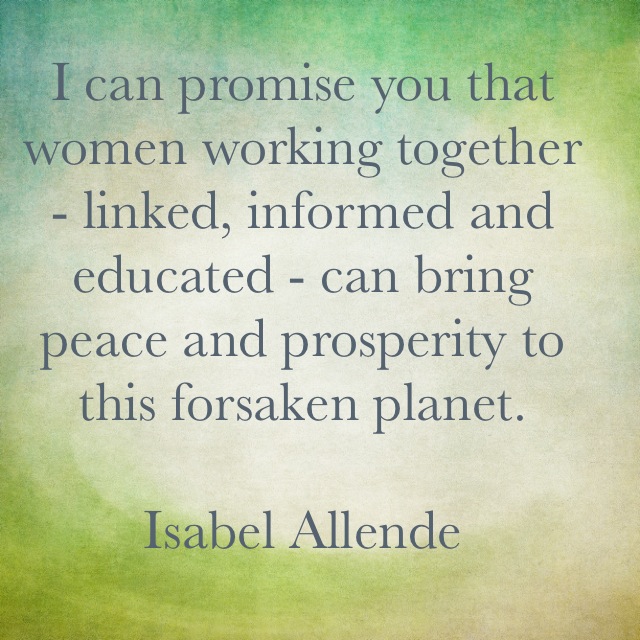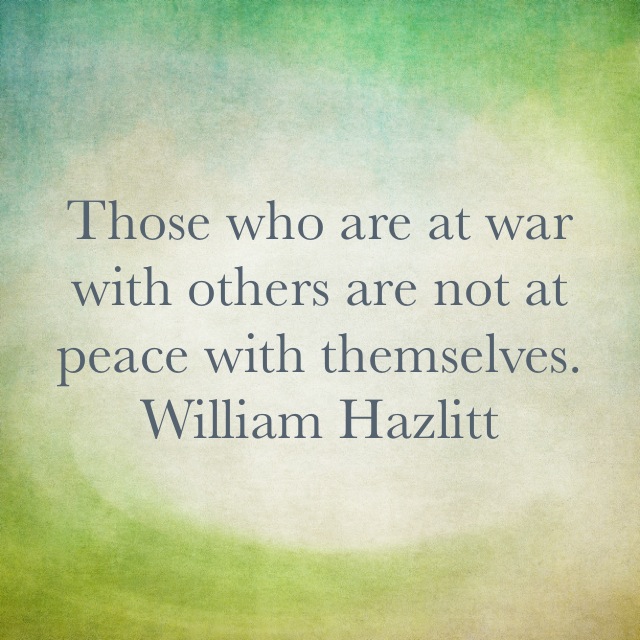
I don’t think a day goes by when I don’t encounter conflict with other people. Even when I don’t see anyone else all day, I read emails or see posts on Facebook, and can encounter conflict. Even in my own head I can have a conflict with another person without even speaking to them.
Kinwomen is about encouraging women to be the best they can be and to help each other be the best we can be.
Here are 8 ways to develop more peace in our relationships.
1. Let It Go: Whenever I feel there is unresolved conflict between me and another person I often feel ill at ease or uncomfortable. I don’t seem to be able to let it go until I make things right by bringing things out into the open, dealing with them and moving on (hopefully).
Honesty and openness brings healing. The Bible tells us, ‘The truth will set you free.’ (John 8:32)
Early in my marriage I hardly ever addressed any issues because I was scared of conflict. After a while bitterness had built up and my heart was turning hard.
I realised I couldn’t go on like this so decided to deal with issues as they arose. I would say if I was hurt or upset and, to my surprise, things got better.
I’ve applied this principle as much as I can in my everyday life. I can say, ‘I made a mistake, I’m sorry’ or, ‘Is there something you’d like to tell me because I think there is an issue between us?’
I’ve found the more open you are and the more open you allow others to be with you, the better able you are to deal with issues and let it go.
2. Losing Can Be Winning: Having a humble attitude and not always being focused on ‘winning’ is a way towards finding peace with others. I ask myself if an issue or argument is worth fighting for in the big picture. If it’s not I let it go. A funny situation occurred in our home over the classic toothpaste issue. I’m a ‘scuncher’ and my husband is a ‘folder’. He is very neat and squeezes every tiny bit of paste out of the tube. I’m less concerned about that!
When we got a bathroom with two sinks I bought two tubes of toothpaste so I could scrunch mine and he could fold his. I can’t tell you how happy my husband was over this small issue. He actually told me this excited him. To me, it wasn’t a big issue. So, for peace’ sake maybe we need to accept our differences and try to find a compromise that works!
3. Go Back to Kindergarten: Many issues in life can be solved by simple principles even if the issues are complicated. Do you remember the piece, All I Ever Needed To Know I Learned in Kindergarten by Robert Fulghum? He said he learned (amongst other things) ‘Share everything. Play fair. Don’t hit people. Put things back where you found them. Clean up your own mess. Don’t take things that aren’t yours. Say you’re sorry when you hurt somebody.’ These simple rules and courtesies are often not even put into practice in our own homes or work places. If we put these simple rules into play as we relate to each other we will have more peace.
4. Manners Help: Sometimes others have an unfortunate personality that rubs people up the wrong way. Everywhere they go it seems upsets and havoc follow. How do we deal will people like this? The same as everyone else – with politeness and courtesy.
5. Put Up Some Boundaries: Reading Boundaries: When to Say Yes, How to Say No to Take Control of Your Life by Drs. Henry Cloud and John Townsend is a helpful tool if you find people often steal your peace by walking all over you. After reading this book, I practiced saying, ‘I’m sorry to disappoint you, but no.’ I found it difficult to say no to people and often ended up doing things I really didn’t want to.
7. It’s Not Always Personal: Being able to recognize when something is not personal is also important. Sometimes people say things to you without thinking of you as a person. They may be responding out loud to their thoughts or thinking about work and only thinking in those terms. We can be oversensitive and take things way too personally.
8. Bite Your Tongue: Being slow to take offense is a skill I’m still building and I try not to take offence. I try and hear what the person is actually saying and bite my tongue before I speak in case I react badly. I’d rather the truth be told. If there is a legitimate criticism of my actions then I should take it in good grace. If it is not legitimate then I will thank the person for their input and then try and put it out of my mind. When you have a strong sense of self and confidence you are able to do this.





